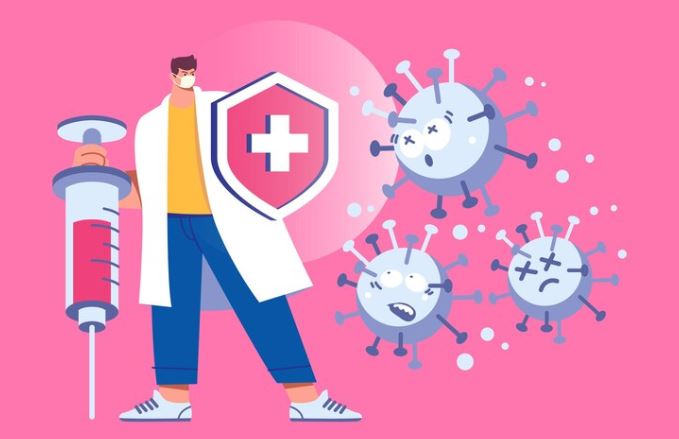Disease prevention is a crucial aspect of maintaining overall health and well-being. By taking proactive steps to prevent diseases, individuals can lead longer, healthier lives and reduce the burden on healthcare systems. This comprehensive guide explores various strategies for disease prevention, from lifestyle changes to medical interventions, and highlights the importance of a proactive approach to health.
The Importance of Disease Prevention
1. Prolongs Life Expectancy
Preventive measures can significantly extend life expectancy by reducing the risk of chronic diseases such as heart disease, diabetes, and cancer. By addressing risk factors early, individuals can enjoy more years of good health.

2. Enhances Quality of Life
Preventing diseases not only adds years to life but also life to years. It helps maintain physical and mental health, allowing individuals to stay active and engaged in their communities and personal interests.
3. Reduces Healthcare Costs
Preventive healthcare is often more cost-effective than treating diseases after they occur. By investing in prevention, individuals and healthcare systems can save money on treatments, hospitalizations, and medications.
4. Promotes Public Health
Disease prevention has a broad impact on public health, reducing the spread of infectious diseases and minimizing outbreaks. It contributes to a healthier, more resilient population.
Lifestyle Changes for Disease Prevention
1. Healthy Diet
A balanced diet is fundamental to disease prevention. Consuming a variety of nutrient-rich foods, including fruits, vegetables, whole grains, lean proteins, and healthy fats, supports overall health and reduces the risk of chronic diseases. Key dietary tips include:
- Increase Fiber Intake: Fiber-rich foods such as vegetables, fruits, legumes, and whole grains help maintain a healthy digestive system and reduce the risk of heart disease and diabetes.
- Limit Processed Foods: Processed foods often contain high levels of salt, sugar, and unhealthy fats, contributing to obesity, hypertension, and heart disease.
- Stay Hydrated: Drinking adequate water supports bodily functions, aids digestion, and helps maintain a healthy weight.
2. Regular Exercise
Physical activity is essential for disease prevention. Regular exercise strengthens the cardiovascular system, improves mental health, and helps maintain a healthy weight. Recommendations include:
- Aim for 150 Minutes of Moderate Activity: Activities such as brisk walking, cycling, and swimming are effective for maintaining health.
- Include Strength Training: Incorporate muscle-strengthening activities at least twice a week to build and maintain muscle mass.
- Stay Active Throughout the Day: Reduce sedentary behavior by taking breaks to stand, walk, or stretch.
3. Avoid Tobacco and Limit Alcohol
Tobacco use and excessive alcohol consumption are major risk factors for various diseases. Quitting smoking and moderating alcohol intake can significantly reduce the risk of lung cancer, liver disease, and cardiovascular conditions.
- Seek Support for Quitting Smoking: Resources such as counseling, nicotine replacement therapy, and support groups can aid in quitting tobacco.
- Moderate Alcohol Consumption: Limit alcohol intake to moderate levels—up to one drink per day for women and up to two drinks per day for men.
4. Maintain a Healthy Weight
Achieving and maintaining a healthy weight is crucial for preventing obesity-related diseases such as diabetes, heart disease, and certain cancers. Strategies include:
- Monitor Caloric Intake: Balance calorie consumption with physical activity to avoid weight gain.
- Eat Mindfully: Pay attention to hunger and fullness cues and avoid emotional eating.
- Set Realistic Goals: Aim for gradual, sustainable weight loss if necessary.
5. Practice Good Sleep Hygiene
Adequate sleep is vital for overall health. Poor sleep quality is linked to an increased risk of chronic conditions such as obesity, diabetes, and cardiovascular disease. Tips for better sleep include:
- Establish a Routine: Go to bed and wake up at the same time each day.
- Create a Sleep-Friendly Environment: Keep the bedroom cool, dark, and quiet, and invest in a comfortable mattress and pillows.
- Limit Screen Time Before Bed: Reduce exposure to screens at least an hour before bedtime to promote better sleep quality.
Medical Interventions for Disease Prevention
1. Vaccinations
Vaccines are one of the most effective tools for preventing infectious diseases. Staying up-to-date with recommended vaccinations protects individuals and communities from outbreaks. Key vaccines include:
- Influenza Vaccine: Annual flu shots help prevent seasonal influenza and its complications.
- HPV Vaccine: Protects against human papillomavirus, which can cause cervical and other cancers.
- COVID-19 Vaccine: Reduces the risk of severe illness from COVID-19 and helps control the pandemic.
2. Regular Health Screenings
Regular health screenings can detect diseases early, when they are most treatable. Common screenings include:
- Blood Pressure Checks: Monitor for hypertension, a risk factor for heart disease and stroke.
- Cholesterol Tests: High cholesterol levels can lead to atherosclerosis and cardiovascular disease.
- Cancer Screenings: Mammograms, colonoscopies, and Pap tests can detect cancers at early stages.
- Diabetes Screening: Blood tests such as fasting glucose or HbA1c can identify prediabetes and diabetes.
3. Preventive Medications
For individuals at high risk of certain diseases, preventive medications can reduce the likelihood of developing those conditions. Examples include:
- Statins: Used to lower cholesterol levels and reduce the risk of heart disease.
- Antihypertensives: Medications that help control high blood pressure.
- Aspirin Therapy: Low-dose aspirin can reduce the risk of heart attack and stroke in certain individuals.
4. Routine Dental Care
Oral health is closely linked to overall health. Regular dental check-ups and good oral hygiene practices can prevent gum disease, which is associated with heart disease and diabetes. Tips include:
- Brush and Floss Daily: Maintain good oral hygiene by brushing twice a day and flossing daily.
- Visit the Dentist Regularly: Schedule dental check-ups and cleanings every six months.
Mental Health and Disease Prevention
1. Manage Stress
Chronic stress can contribute to the development of various diseases, including heart disease, depression, and anxiety. Effective stress management techniques include:
- Mindfulness and Meditation: Practices such as mindfulness meditation can reduce stress and improve mental well-being.
- Physical Activity: Exercise is a natural stress reliever that boosts mood and reduces anxiety.
- Social Support: Strong social connections provide emotional support and reduce stress levels.
2. Seek Mental Health Support
Mental health is a critical component of overall health. Addressing mental health issues promptly can prevent the development of more severe conditions. Resources include:
- Therapy and Counseling: Professional help can provide coping strategies and support for mental health challenges.
- Support Groups: Joining a support group can offer shared experiences and encouragement.
Environmental Factors and Disease Prevention
1. Maintain a Clean Living Environment
A clean and safe living environment reduces the risk of infectious diseases and promotes overall health. Strategies include:
- Regular Cleaning: Keep living spaces clean and free from dust, mold, and allergens.
- Safe Drinking Water: Ensure access to clean, safe drinking water to prevent waterborne diseases.
2. Reduce Exposure to Toxins
Minimize exposure to environmental toxins that can contribute to diseases such as cancer and respiratory conditions. Tips include:
- Avoid Harmful Chemicals: Limit the use of products containing harmful chemicals, such as certain cleaning agents and pesticides.
- Indoor Air Quality: Improve indoor air quality by using air purifiers and ensuring proper ventilation.
Conclusion
Disease prevention is a multifaceted approach that involves lifestyle changes, medical interventions, mental health support, and attention to environmental factors. By adopting healthy habits, staying informed about medical screenings and vaccinations, and managing stress effectively, individuals can significantly reduce their risk of developing chronic diseases and enjoy a healthier, more fulfilling life. Proactive disease prevention not only benefits individuals but also contributes to the overall well-being of communities and reduces the burden on healthcare systems. Prioritize disease prevention today to secure a healthier tomorrow.



